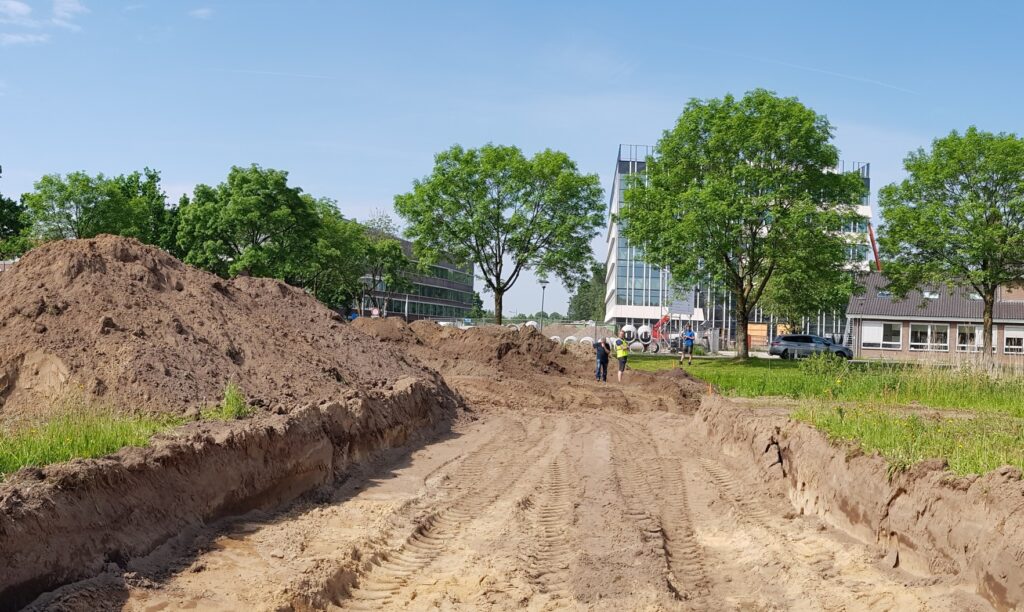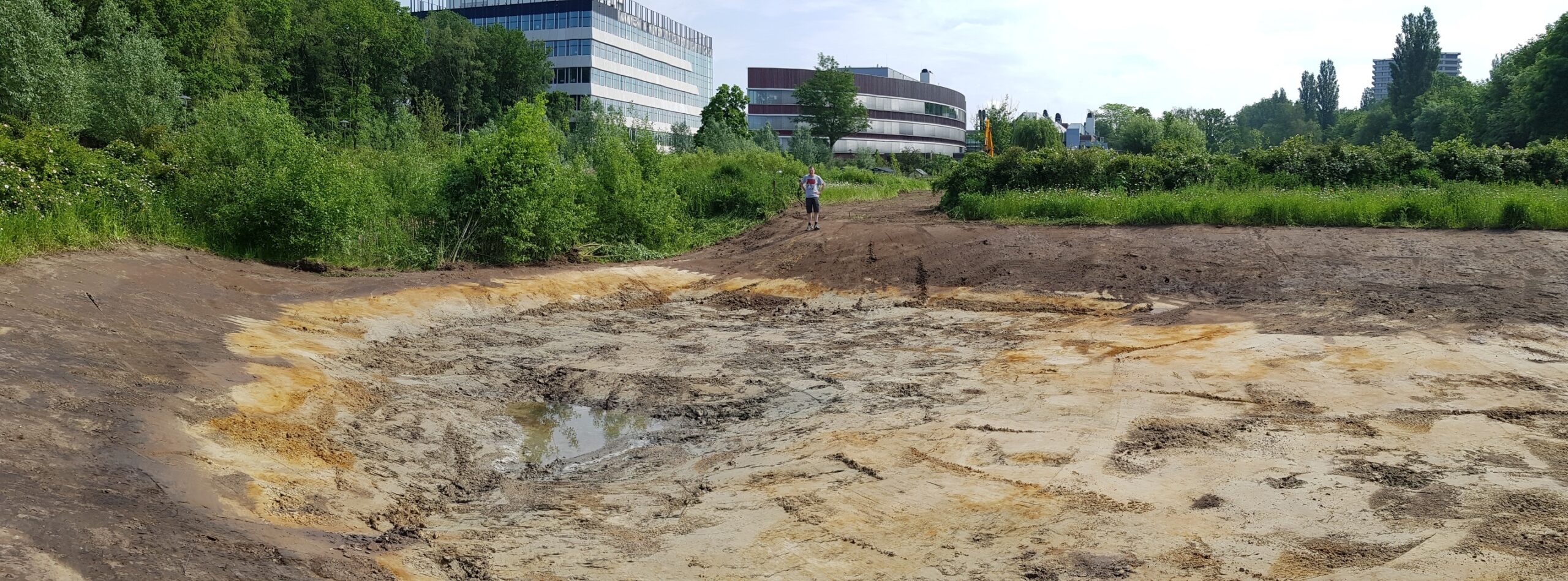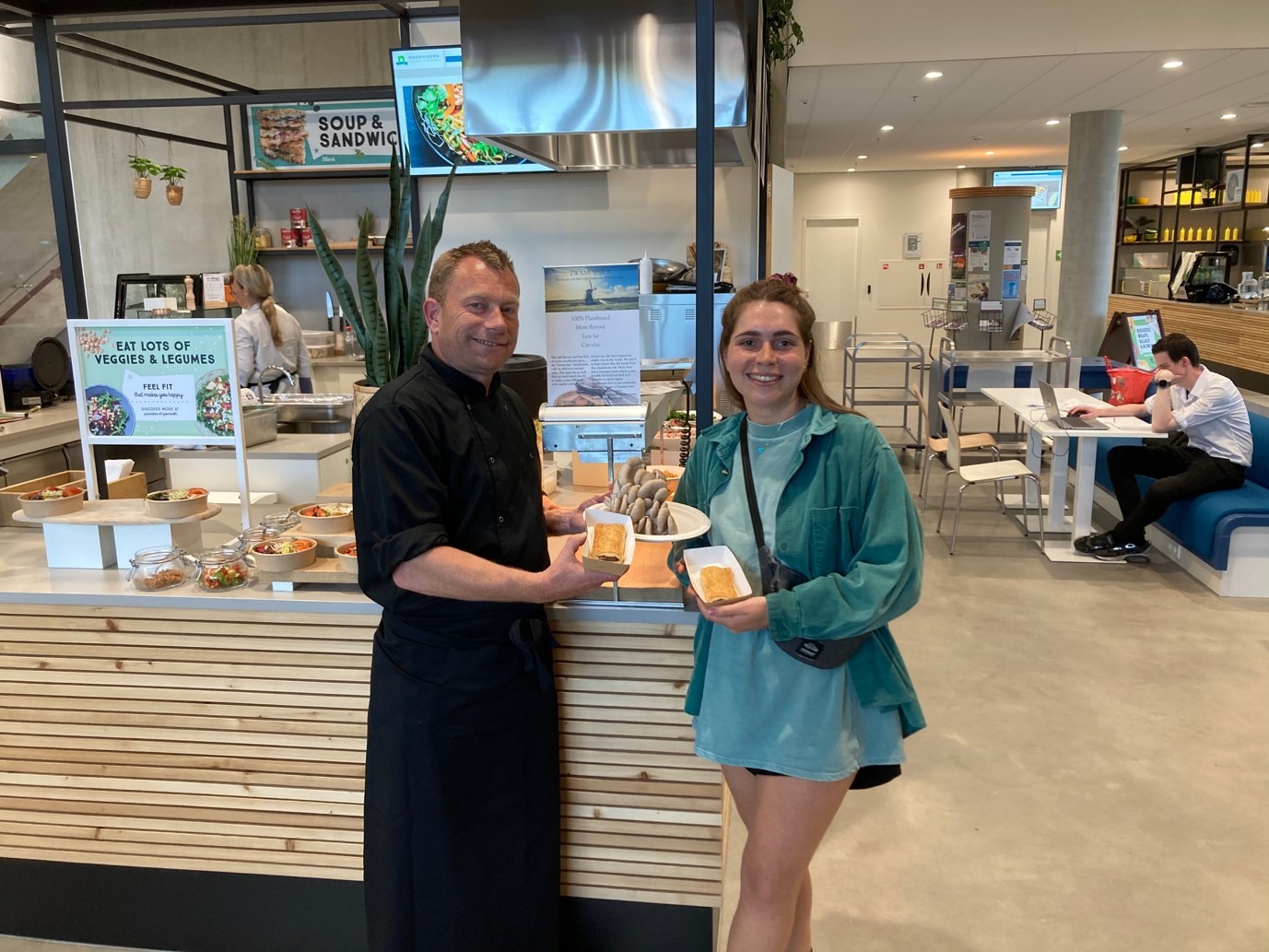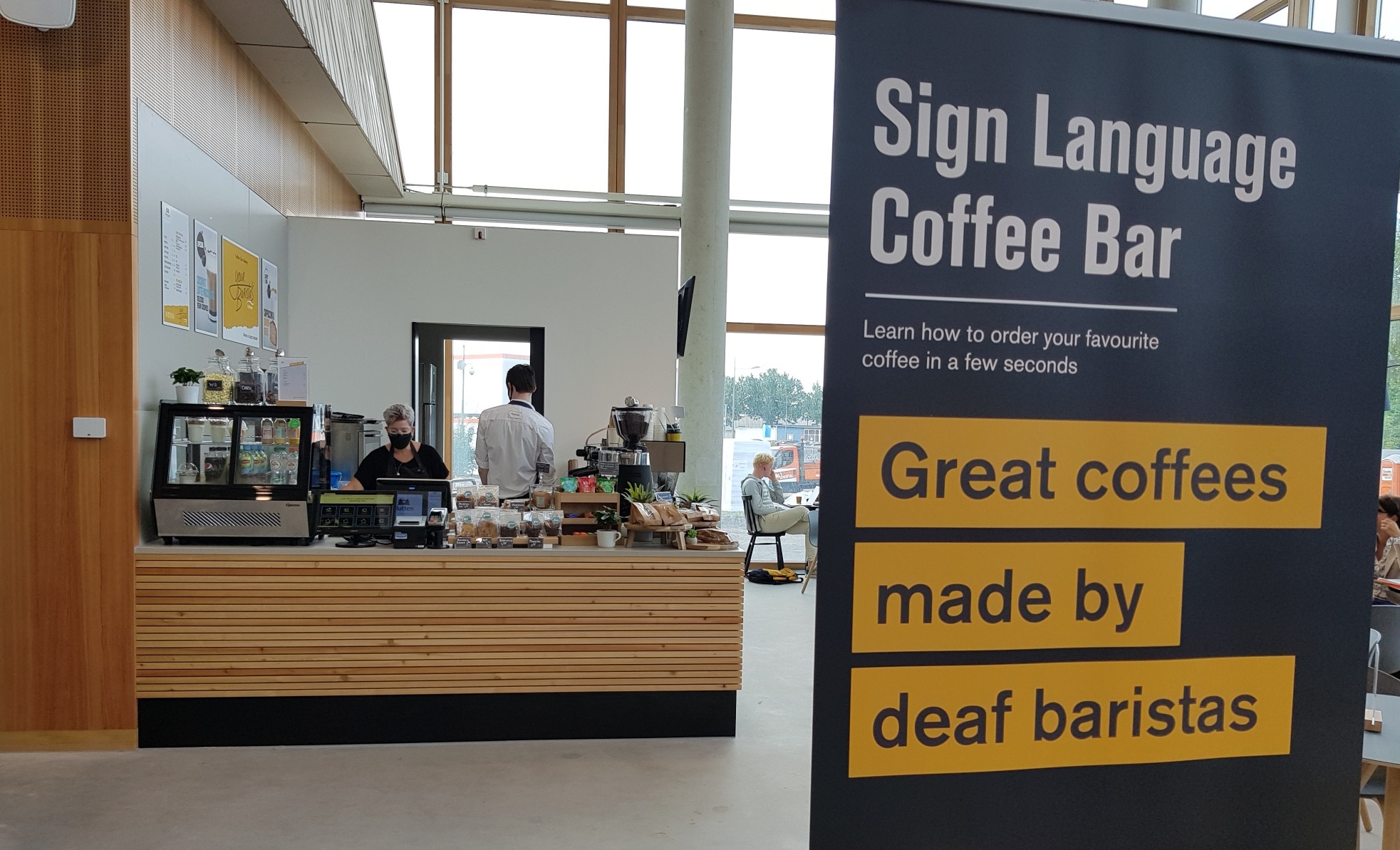The pond near Zodiac made way for a new bicycle lane connecting Aurora to the rest of the campus. The first stage of the lane is currently under construction. Draining the tip of the bond in the middle of the breeding season is a sensitive issue. The second stage in the construction, extending the lane along the Dassenbos to Dijkgraaf on the western side of the campus, will take place later. There too, a small pool will have to make way.
Nesting season
Draining the pond has bird aficionados worried. It is the timing that leads to comments on the intranet, as it is currently nesting season. However, according to Henk Westendorp of Facilities and Services, who is responsible for the work, this was taken into consideration. The work was postponed until the two nesting coots were done.

‘Aquatic birds such as coots continue to use their nest even after their chicks have hatched’, says behavioural ecology teacher Lysanne Snijders. ‘Moreover, many coots make multiple nests per season.’ ‘Postponing the construction for another month would have been a significant improvement’, says special professor Animal Personality Kees van Oers. ‘It is a pity that the sophism -construction must be completed in time- is used, while it affects what little nature is left on the campus.’
Bio-tarmac
Time is, indeed, an issue, says Westendorp. ‘Laying the tarmac takes only two days but is preceded by quite some groundwork. Moreover, we use bio-tarmac, with the adhesive lignin, as was used in the cycling lane along the Bornsesteeg. This is not something any manufacturer can produce. This makes planning more challenging. And, the construction must be completed before the start of the new academic year.’
The pond will be dry a large portion of the year, much like the wet garden near Atlas
Wieger Wamelink, ecologist Wageningen Environmental Research
There is some compensation for the coots and their fans: a new pond at The Field. This morning the final stages in the construction of a 40 x 15-metre pond were completed. This pond has been dug to compensate for the lost open water. This location previously had a herb-rich pasture, which was managed by ecologist Wieger Wamelink.
Wamelink is delighted with the pond. The pond is connected to the ditches on the campus as a reservoir for excess water. ‘This means the pond may well lay dry for large parts of the year’, Wamelink says. ‘Much like the wet garden at Atlas. Look, there is a small puddle of seepage water in the centre.’
Also read:

 The newly created pond at The Field. Photo: Roelof Kleis
The newly created pond at The Field. Photo: Roelof Kleis 

